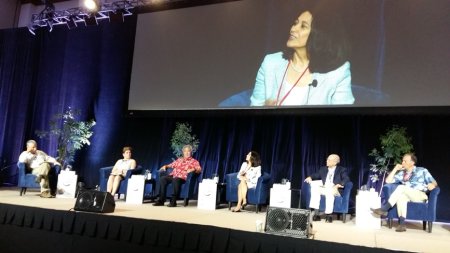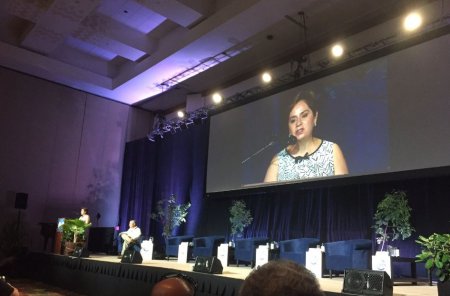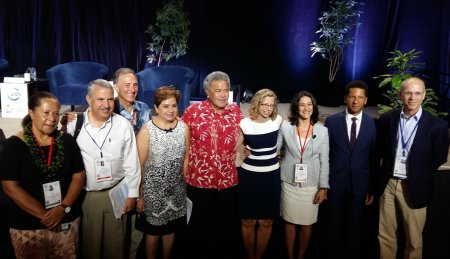A Changing Climate: Championing Nature-Based Solutions

The Paris Agreement has sent a clear signal to the international community of the importance of conserving and enhancing natural ecosystems such as wetlands, and of the need to protect biodiversity and ensure the integrity of all ecosystems, when taking action on climate change.
At this high-level session at the IUCN World Conservation Congress moderated by world-renown journalist and Pulitzer Prize winner Thomas Friedman, panellists discussed economic and security risks posed by climate change; the essential role of ecosystems to combat climate change and highlighting what is being done, what needs to happen next, and how the global conservation community can make a tangible difference in combating this global challenge.
UNFCCC Executive Secretary Patricia Espinosa foresaw an early entry into force of the Paris Agreement and noted her focus on: developing tools to make it operational, including rules on transparency; strengthening structures to support developing countries; and mobilizing actors for action on the ground.

Ambassador for the Environment, France Xavier Sticker, France, reported his government’s efforts to ensure Paris Agreement commitments will be honoured and strengthened “with ecosystem protection in mind.”
Prime Minister Enele Sopoaga, Tuvalu noted climate change as a security issue and emphasized the extreme vulnerability of Atoll Nations and small island developing States.
Ramsar Convention Secretary General Martha Rojas-Urrego underscored the huge carbon storage potential of peatlands conservation and wetlands vital role to achieve universal access to safe drinking water by 2030. Martha Rojas-Urrego also noted differentiated gender vulnerabilities to climate change impacts; she called for empowering women to catalyse success for climate change action.
Reminding that climate change is a challenge for both society and industry, Tom Butler, International Council on Mining and Metals, stressed the importance of partnerships among various actors and the benefits of holistic water and landscape management.
Highlighting the multiple benefits of the Rio Conventions, Peter Seligmann, Conservation International, called for increased investment in nature conservation. He noted the need to provide business and government with tools to measure the impacts of their actions.
You can watch "A Changing Climate: Championing Nature-Based Solutions" session here

Speakers:
Tom Friedman, Foreign Affairs Columnist and Author, The New York Times (Moderator)
Patricia Espinosa, Executive Secretary, United Nations Framework Convention on Climate Change (UNFCCC)
Ms Martha Rojas-Urrego, Secretary General, The Ramsar Convention on Wetlands
Dame Meg Taylor, Secretary General, Pacific Islands Forum
Peter Seligmann, Chairman and CEO, Conservation International
Tom Butler, President and CEO, International Council on Mining & Metals (ICMM)
The 2016 IUCN World Conservation Congress is the largest gathering of environmental policy makers since the Paris Climate Agreement and the adoption of the Sustainable Development Goals, and presents a major opportunity to start putting these deals into action.
Thousands of top scientists, academics and business and political leaders from around the world will present the latest conservation advances, tools and action during the Congress Forum.
Over 1,500 sessions will cover the most pressing and sometimes controversial topics including ocean protection and marine plastics, wildlife trafficking and biodiversity loss, climate change mitigation and resilience, and the economic and social impacts of transitioning, or not transitioning, to more sustainable development paths.